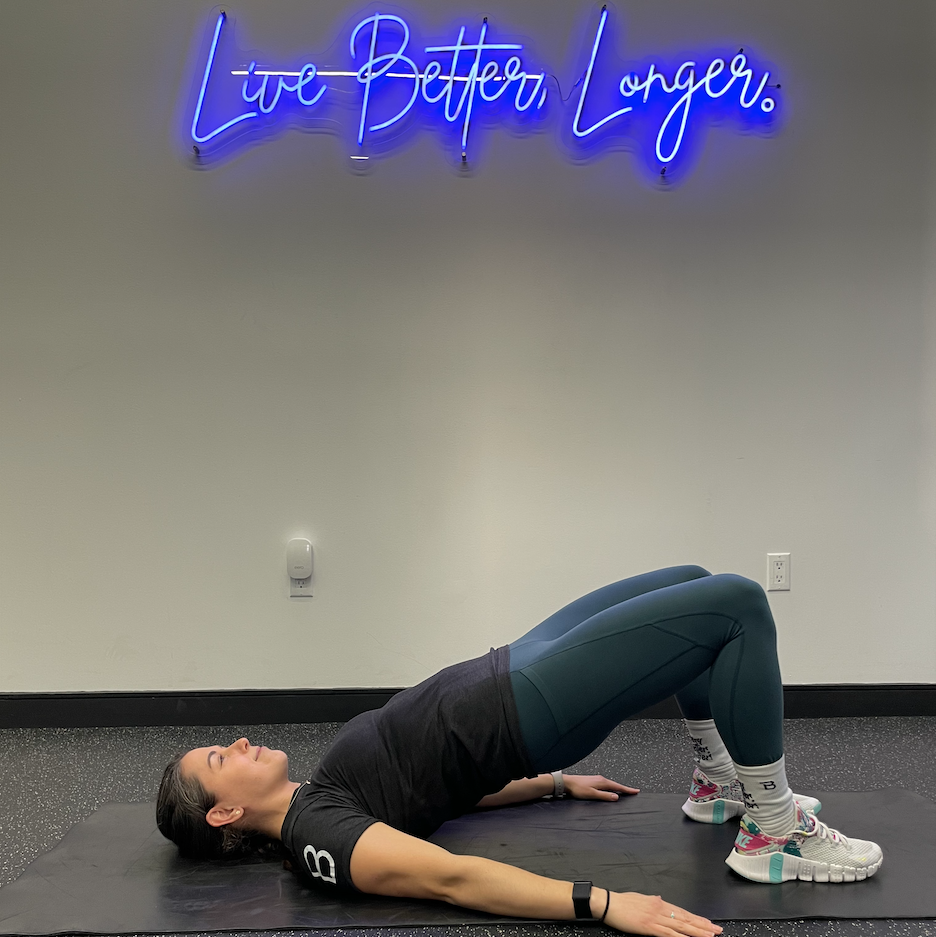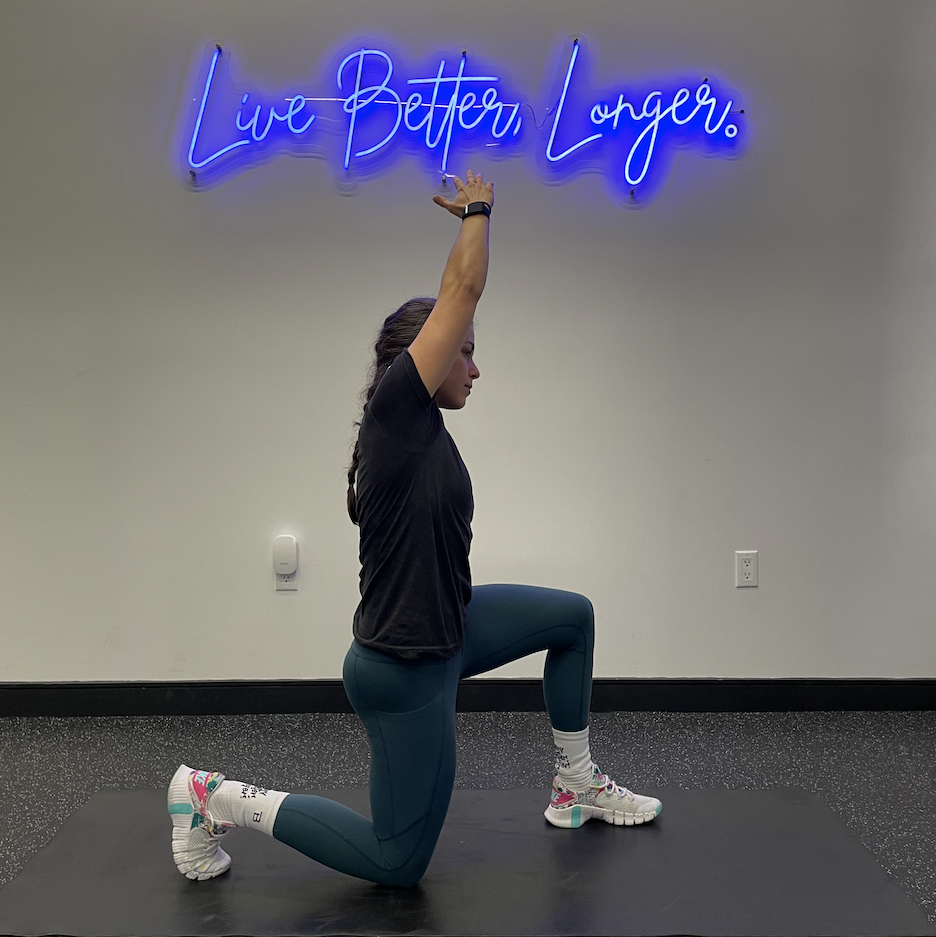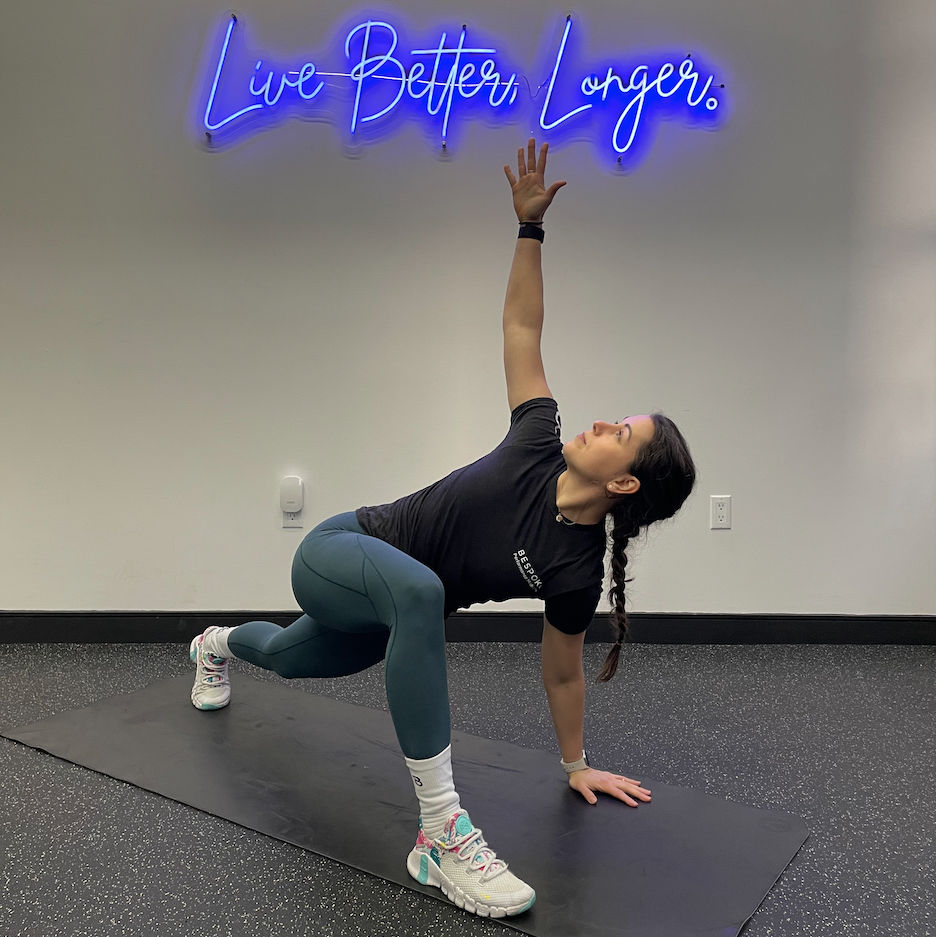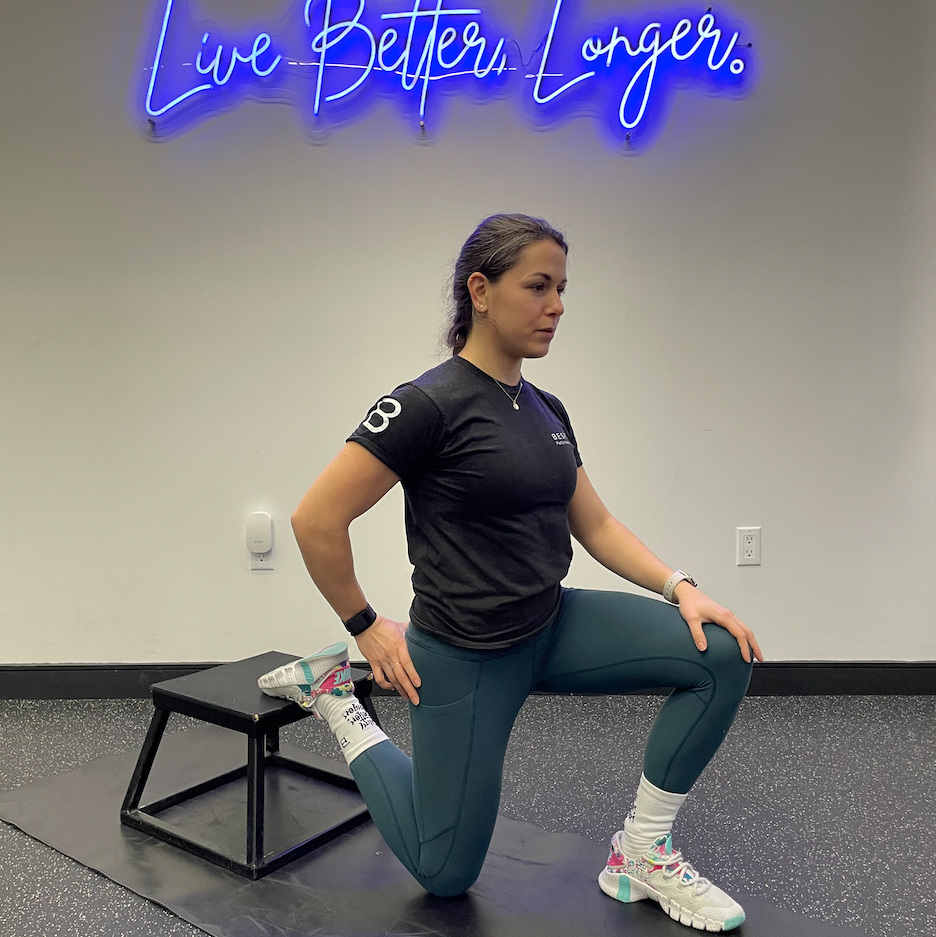I’ve been battling lower back pain, and it is throwing off all my usual workouts. All that time sitting in my chair is taking its toll. I need more stretching in my routine, and you probably do too if a little hip or knee pain is holding you back. A few stretches in key areas, like the psoas, can get you back in your groove.
The psoas is a deep hip flexor that connects to the spine and extends down to our femur, says Kristen Lettenberger, DPT, CSCS, physical therapist at Bespoke Treatments. Its main function is to bring your knee up to your chest.
The hip flexors, psoas included, get a lot of wear and tear in and out of the gym. “When we’re sitting, this muscle becomes placed into a shortened position and can become tight if we spend a prolonged period of time in this position,” adds Winnie Yu, DPT, CPT, sports and orthopedic physical therapist at Bespoke Treatments.
Meet the experts: Kristen Lettenberger, DPT, CSCS, is a physical therapist and Winnie Yu, DPT, CPT, is a sports and orthopedic physical therapist s at Bespoke Treatments in New York City.
TBH, it’s hard to find a downside to spending a few minutes stretching the psoas. Not only can a psoas stretch reduce lower back pain, but it can also improve knee pain, daily movements, posture, walking and running, sports performance in soccer and football, and potentially, stability, and function of the pelvic floor muscles.
Sound too good to be true? Well, it’s not—here’s everything to know about the psoas and the most effective ways to stretch it from physical therapists.
What is the psoas—and what causes pain?
The psoas is a hip flexor that connects the spine to the femur, Lettenberger says. It essentially runs from the vertebrae of your lower back to the front of your hip, attaching onto your femur. It’s largely out of sight, out of mind unless it gets tight.
Your psoas kicks in any time you bring your knee up to the chest. (Think of high knees, mountain climbers, deep squats, jumping, sprinting, and running. It tightens up in seated positions and shortens after extending sitting. So, whether you’ve been sitting in your office chair for eight hours today, or you’ve just returned from a run, it’s probably a good idea to make time for some psoas stretches.
Best Stretches For Psoas Pain
It only takes a little bit of time to make a big impact. The following five stretches are the most effective for releasing the psoas, according to Lettenberger.
Instructions: For a cooldown after a workout, complete 2-3 dynamic reps, continually moving in and out of the position, then switch sides. For a warm-up before a workout, complete 5-10 static hold reps, then switch sides.
1. Bridge
How to:
- Lay on your back with your feet hip-width apart and flat on the ground with knees bent and pointing toward the ceiling. Let arms rest on the floor at your sides.
- Engage your glutes to bring your hips up towards the ceiling so the front of your body is lengthening and stretching.
- Lower the hips back to the ground with control. That’s 1 rep. Complete two to three sets of 10-12 reps.
Pro tip: Exhale as you push your hips up to the ceiling. “The exhale is really powerful to regulate that nervous system and push into a further stretch,” Lettenberger says.
2. Half Kneeling Hip Flexor
How to:
- Start standing with feet close together.
- Step the right foot back, bending both knees to 90 degrees into a lunge, and tuck your right toes under. Left foot, right knee, and right foot are touching the ground.
- Squeeze the right glute and drive the hip forward. (You should feel a good stretch in the front of the right leg and right into the hip flexor, Lettenberger says.) That’s 1 rep.
Pro tip: Take in a deep breath and as you exhale, sink deeper into the stretch to release tension in front of the hip.
3. Standing Hip Thrust
How to:
- Start standing with feet hip-width apart.
- Tuck your pelvis underneath you, engaging your glutes so you feel like you’re thrusting your hips forward a bit.
- Step right leg back to feel the stretch in the front of your hip. Hold the position for 30 seconds. That’s 1 rep.
Pro tip: You’re doing it right if you feel most of the stretch in the front of the hip near the hip joint and slightly below as that’s the psoas attachment site, Lettenberger says. You might also feel a stretch through the obliques.
4. Low Lunge Twist
How to:
- Start standing with feet together.
- Step left leg back and bend right knee into a low lunge with hands touching the floor.
- Lift your right arm up toward the ceiling and rotate your chest open. Hold for 15-20 seconds.
- Reverse the arm motion. That’s 1 rep.
5. Half Kneeling Stretch With Foot Elevated
How to:
- Start kneeling on the ground with right foot resting on an elevated surface behind you.
- Maintain the position of the right leg, and step left foot forward and plant it on the ground using hands on the ground for balance, if needed.
- With upright posture, squeeze the right glute, driving the hip forward. That’s 1 rep.
Psoas Stretch Benefits
- Prevent lower back pain. Because of its attachment to the lower back, opening up the psoas through stretches will help reduce pain, Lettenberger says.
- Help daily mobility. By stretching the psoas frequently, you’ll become more comfortable sitting in your chair to work every day, or standing and moving around.
- Reduce hip pain. Stretching the psoas is helpful “if you’re having pain in the front of your hip, especially when you’re sitting for a long period of time,” Lettenberger says.
- Improve performance in sports. The psoas is especially beneficial in sports that require hip extension or powerful kicking positions as staple movements like soccer, football, and running, Yu explains.
- Increase power. When you stretch your psoas, you’ll likely gain more range of motion in the hips, Lettenberger says. You’ll be able to jump higher, squat deeper, and possibly sprint faster because you have more of a hip extension, Lettenberger adds. Okay, I’m in!
Addison Aloian (she/her) is an editorial assistant at Women’s Health. When she’s not writing about all things pop culture, health, beauty, and fashion, she loves hitting leg day at the gym, shopping at Trader Joe’s, and watching whichever hockey game is on TV. Her work has also appeared in Allure, StyleCaster, L’Officiel USA, V Magazine, and Modern Luxury Media.












